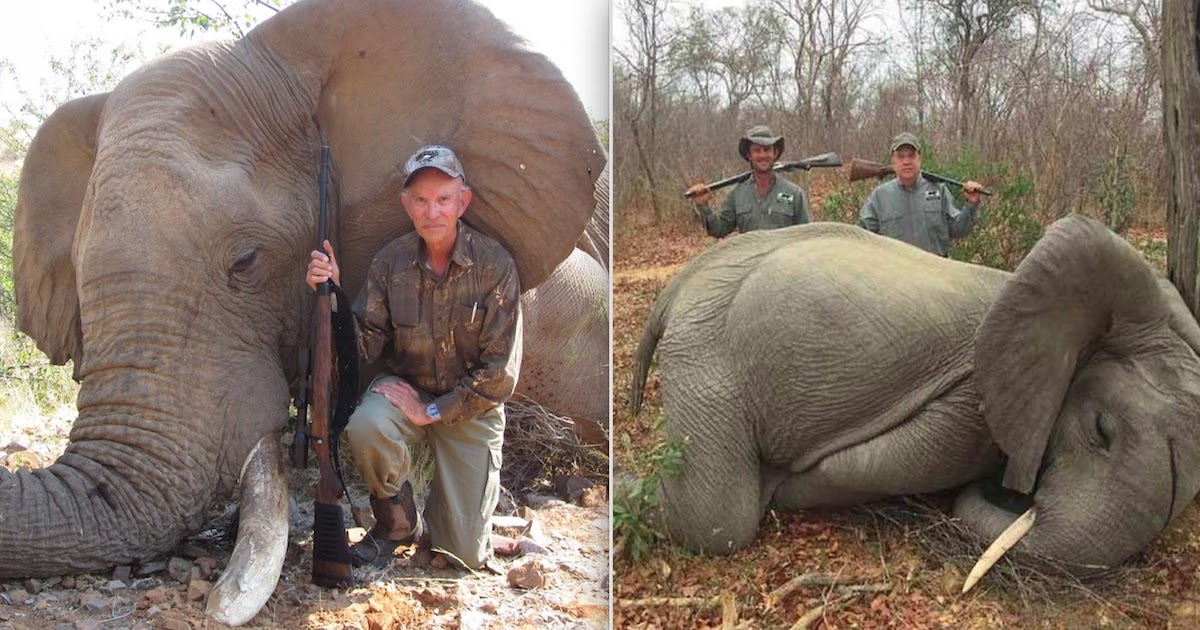
In what is extremely disturbing news for animal lovers everywhere, the nation of Botswana has legalised the hunting of elephants in order to gain an extra-income for the country. On February the 7th the Botswanan government held an auction for the life of 60 elephants, and at $43,000 per head the auction has netted them $2.3 million.
In May last year, the president of Botswana, Mokgweetsi Masisi, revoked a 5 year ban on the hunting of elephants stating that elephants were imposing on human land and therefore had to be subject to a cull on their numbers. The move has been praised by some locals, particularly farmers, who say the elephants stray on to their land, eat their crops, and occasionally attack humans, even killing them. The president is believed to have given permission to kill over 270 elephants in 2020.
#Botswana #elephants #elephant #ElephantHeaven #Auction #Hunting
— City's🐘 for Elephants & Rhinos (@CitysFElephants) February 7, 2020
❗Please sign and share this important petition my 🐘 friends❗https://t.co/9DmImEd07s
Botswana had actually been doing very well in terms of elephant conservation, with elephant numbers rising from 80,000 20 years ago to 130,000 now, which in some way explains the greater interaction between elephant and human communities.
The EMS foundation which aims to preserve elephants in the wild said:
“The Botswana government has demonstrated to the world that it does not care that elephants play a critical role in maintaining healthy ecological systems, nor does it seem to understand that killing off prime elephant bulls undermines the very basis of its successful ecotourism economy”.
Thereby, stating their belief that the government would make far more money by facilitating tourism based on seeing elephants in the wild, than by auctioning their lives to hunters.
They were not the only conservation group to spell out their disapproval. Eduardo Goncalves, founder of the Campaign to Ban Trophy Hunting, said:
“Trophy hunting is artificial selection. By targeting the biggest and strongest animals, it leaves the weaker, smaller animals behind. This means the best genes are being lost, so the species will be less able to adapt to accelerating climate change, it will be more prone to disease, and the risk of extinction is greater.”
'Ross Harvey, an environmental economist in South Africa, told the BBC: "There is no scientific evidence to support the view of there being too many elephants.' #Botswana #elephants BBC News - Botswana auctions off permits to hunt elephants https://t.co/4n1nmNOuEy
— Christina (@CWitvrouwen) February 8, 2020
An estimated 100 African elephants are killed every day for their ivory (their tusks), which are used as ornaments and in oriental medicine. The African elephant population is believed to have declined by two-thirds since 1979—from 1.3 million to a mere 414,000 in 2015—according to the International Union for Conservation of Nature.
Surely, it must now become clear that governments in Africa must put in place stronger measures that preserve elephant numbers while at the same time allowing farmers to thrive and economic development to continue. As population increases, cities get larger, and the farmland required to feed the population covers greater tracts of land there will only be a greater number of issues with elephants and humans interacting.
Most importantly however, it is time to stop rich westerners from travelling from abroad to Africa to kill these magnificent beasts!












COMMENTS